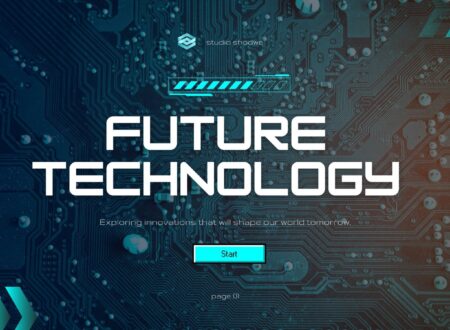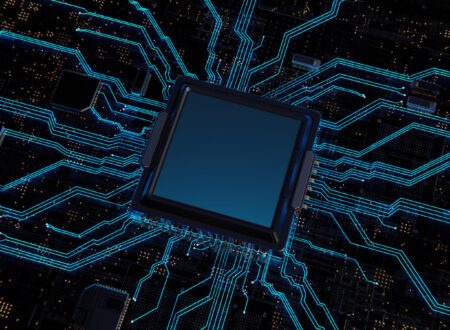Introduction to the fast-paced world of technology
Technology is evolving at a breathtaking pace, reshaping our world in ways we could hardly imagine just a few years ago. From smart devices that learn our habits to groundbreaking medical advancements that extend life expectancy, every corner of our lives feels the impact of innovation. As we stand on the brink of new discoveries, it’s essential to explore the technologies leading this charge and understand how they will influence our future. Join us as we delve into the innovations set to redefine industries, enhance everyday experiences, and challenge societal norms. The future isn’t just coming; it’s already here.
Artificial Intelligence: Transforming industries and our daily lives
Artificial Intelligence is not just a buzzword; it’s reshaping the fabric of industries worldwide. From healthcare to finance, its impact is profound and far-reaching.
In healthcare, AI algorithms analyze patient data at lightning speed. They assist doctors in diagnosing diseases earlier than ever before. Imagine a world where your doctor has access to all medical research at their fingertips, thanks to AI.
The business sector also feels the shift. Companies are using AI for predictive analytics, streamlining operations, and enhancing customer experiences. Chatbots handle inquiries effortlessly while machine learning optimizes inventory management.
Even in our daily lives, AI surrounds us. Smart assistants plan our schedules or suggest playlists tailored to our mood. As we embrace these technologies, they become seamlessly integrated into how we live and work.
This transformation opens doors to possibilities previously thought unreachable—enhancing productivity while challenging traditional roles across various sectors.
Virtual and Augmented Reality: Blurring the lines between real and digital worlds
Virtual and Augmented Reality (VR and AR) are becoming increasingly integrated into our lives. They’re not just for gaming anymore. Industries like education, healthcare, and real estate are harnessing these technologies to enhance experiences.
Imagine attending a lecture where historical events unfold around you in 3D. Or visualize your future home with furniture arranged exactly how you want it—all without lifting a finger.
In the realm of training simulations, professionals can practice complex procedures in safe environments. Surgeons rehearse intricate operations before ever touching a patient.
AR takes this further by overlaying digital information onto the physical world. Think of apps that help navigate cities or show additional data about artwork in galleries when viewed through your smartphone.
The boundaries between what is real and what is simulated continue to dissolve, inviting us to explore new dimensions that were once purely imaginative realms.
Internet of Things: Connecting everything for a smarter lifestyle
The Internet of Things (IoT) is reshaping our lives in remarkable ways. Everyday devices are becoming smarter and more interconnected. Imagine your fridge alerting you when groceries run low or your thermostat adjusting automatically based on your schedule.
Smart homes are just the beginning. Wearable technology tracks health metrics, providing real-time insights that empower users to make informed decisions about their well-being. Cities too are evolving; traffic lights can communicate with vehicles to optimize flow and reduce congestion.
Security systems now integrate seamlessly with mobile apps, allowing homeowners to monitor their property from anywhere in the world. IoT is not just convenience—it’s a new level of control over our environments.
As we embrace these innovations, they promise efficiency and sustainability while enhancing our daily routines. The potential impact on industries like agriculture, healthcare, and logistics is enormous, driving productivity like never before.
Biotechnology: Advancements in healthcare and beyond
Biotechnology is reshaping healthcare in remarkable ways. From gene editing to personalized medicine, the possibilities are expanding rapidly.
CRISPR technology allows scientists to modify DNA with unprecedented precision. This opens doors for treating genetic disorders that were once deemed untreatable. Imagine a future where hereditary diseases could be corrected before birth.
Moreover, biotechnology plays a crucial role in developing vaccines and therapies at lightning speed. The COVID-19 pandemic showcased how quickly mRNA technology could adapt and produce effective solutions.
But it doesn’t stop there—biotech is also impacting agriculture and environmental sustainability. Genetically modified crops promise higher yields while using fewer resources.
As these advancements continue, we can expect not just improvements in health but also significant shifts in our approach to food security and ecological balance. Who knows what innovations lie just around the corner?
Blockchain Technology: Revolutionizing data storage and security
Blockchain technology is rapidly changing how we view data storage and security. It operates on a decentralized network, which means no single entity controls it. This structure enhances transparency and reduces the risk of manipulation.
Transactions are recorded in blocks that link together, creating an immutable chain. Once information is added, altering it becomes nearly impossible without consensus from the network participants. This feature makes blockchain incredibly secure against fraud and cyberattacks.
In industries like finance, healthcare, and supply chain management, blockchain offers innovative solutions for tracking assets and verifying identities. Smart contracts automate processes without intermediaries, saving time and costs.
As businesses embrace this technology, trust between users increases significantly. The potential applications are vast—ranging from protecting sensitive personal data to ensuring product authenticity across global markets
The Impact of these Innovations on Society
The innovations we embrace are transforming the very fabric of society. Everyday tasks become streamlined, allowing for more efficiency and productivity. From remote work to smart homes, our lifestyles adapt to new conveniences.
Education is evolving as well. Online learning platforms provide access to quality resources for countless individuals globally. This democratization of knowledge fosters a generation eager to learn and innovate.
However, these advancements also create challenges. Job displacement due to automation raises concerns about economic stability. Some fear that technology may widen existing inequalities instead of bridging gaps.
Social interactions have shifted too. Virtual communication tools enable connections across distances but can lead to isolation in real life experiences. As we navigate this landscape, it becomes crucial to balance technological benefits with their societal implications.
In a world increasingly governed by algorithms and data, understanding the human aspect remains vital for fostering meaningful relationships amid rapid change.
Ethical Concerns Surrounding Technological Advancements
As we embrace the rapid advancements in technology, it’s crucial to pause and reflect on the ethical implications that accompany these innovations. The benefits are undeniable; however, they come with a host of challenges that cannot be ignored.
Artificial intelligence has proven its potential but raises concerns about privacy and bias. As algorithms dictate decisions in hiring or law enforcement, the risk of perpetuating existing inequalities is real. We must question who is responsible when AI systems fail or cause harm.
Similarly, virtual and augmented reality can enhance experiences but may also lead to escapism and detachment from reality. What happens when people prefer digital environments over their physical surroundings? This shift could alter social dynamics in unforeseen ways.
The Internet of Things promises convenience through connectivity; yet, it opens doors for data breaches and surveillance. Our homes may become smarter but at what cost to our personal privacy?
In healthcare, biotechnology offers groundbreaking solutions but poses ethical dilemmas regarding genetic manipulation and access to treatments. Who decides which technologies are acceptable? And how do we ensure equitable distribution?
Blockchain technology holds immense potential for security but also invites questions about accountability within decentralized systems. Without clear regulations, misuse becomes a possibility.
Navigating these complexities requires ongoing dialogue among technologists, ethicists, policymakers, and society as a whole. It’s essential that as we innovate forward into this exciting future, we remain vigilant about creating a world where technology serves humanity rather than undermines it.





